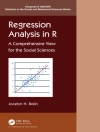‘Excellent advice on dealing with young people. I wish I′d had this book when my own children were adolescents!’
—Patricia Wolfe, International Educational Consultant, Mind Matters, Inc.
‘Written in a reader-friendly manner, the book thoughtfully examines the transition period from childhood to adulthood and combines scholarship from psychology, education, and neuroscience. Loved the graphics!’
—Sheryl Feinstein, Associate Professor, Augustana College
‘Readers will leave this book with a sense of calmness about living or working with adolescents.’
—Bob Patterson, Training Manager, Discovery Education
How the teenage brain thinks, feels, learns, and changes on its journey to adulthood.
In this enlightening volume, expert educator Robert Sylvester explains how adults can better understand teenagers through an engaging discussion of the adolescent brain. Readers will learn how to:
- Mentor adolescents rather than attempt to manage and control them
- Nurture creativity, imagination, and individuality
- Understand such critical issues as sexuality and bonding, productivity and vocation, morality and ethics, risk and security, technology and drugs, collaboration and autonomy, and more
Familiar examples and nontechnical language make this an accessible resource appropriate for rewarding classroom or family discussion.
Tabella dei contenuti
Preface
About the Author
1. Adolescence in Contemporary Society: Being Somewhat Confused
Confusion Within Adolescents
Confusion About Adolescents
An Introduction to the Issues Explored in Subsequent Chapters
2. Brain Organization and Development: Being Human
Mirror Neurons
The Organization of the Human Brain
The Development of the Human Brain
Maintaining a Developing Brain
3. Sexuality and Bonding: Maintaining Our Species
Biological Differences
Interpreting Gender Differences
Cultural Confusion
Human Bonding Behavior
Emerging Cultural Conflicts
The Hazards of Sexual Pleasure
4. Productivity and Vocation: Maintaining Our Planet
A 21st-Century Curriculum for 21st-Century Students
A 21st-Century Vocation
Home, School, and Vocation
5. Morality and Ethics: Maintaining Our Culture
Factual Knowledge and Decisions
Adaptive Preferences and Choices
The Development of Our Moral/Ethical Base
6. Risks and Security: Going Beyond the Known
Our Brain′s Regulatory Systems
From Emotional Arousal to Conscious Decision
The Biology of Risk and Security
Adults and Adolescent Risks
7. Technology and Drugs: Going Beyond Nature
Biological Stress
Technological Enhancement
Drug Support
Psychoactive Drugs: A Primer
8. The Arts and Humanities: Going Beyond Reality
Adornment
Language, Music, and Dance
The Humanities
9. Collaboration and Autonomy: Going Beyond Adolescence
Collaboration
The Reach for Autonomy
Appendix A: Neurotransmitters and Neural Transmission
Appendix B: The Cerebral Cortex
Glossary
References and Resources
Index
Circa l’autore
Robert Sylwester is an Emeritus Professor of Education at the University of Oregon who focuses on the educational implications of new developments in science and technology. He has written 20 books and curricular programs and 200+ journal articles. His most recent books are The Adolescent Brain: Reaching for Autonomy (2007, Corwin Press) and How to Explain a Brain: An Educator’s Handbook of Brain Terms and Cognitive Processes (2005, Corwin Press). He received two Distinguished Achievement Awards from The Education Press Association of America for his syntheses of cognitive science research, published in Educational Leadership. He has made 1600+ conference and staff development presentations on educationally significant developments in brain/stress theory and research. Sylwester wrote a monthly column for the Internet journal, Brain Connection, throughout its 2000-2009 existence, and is now a regular contributor to the Information Age Education Newsletter (http://i-a-e.org/).












